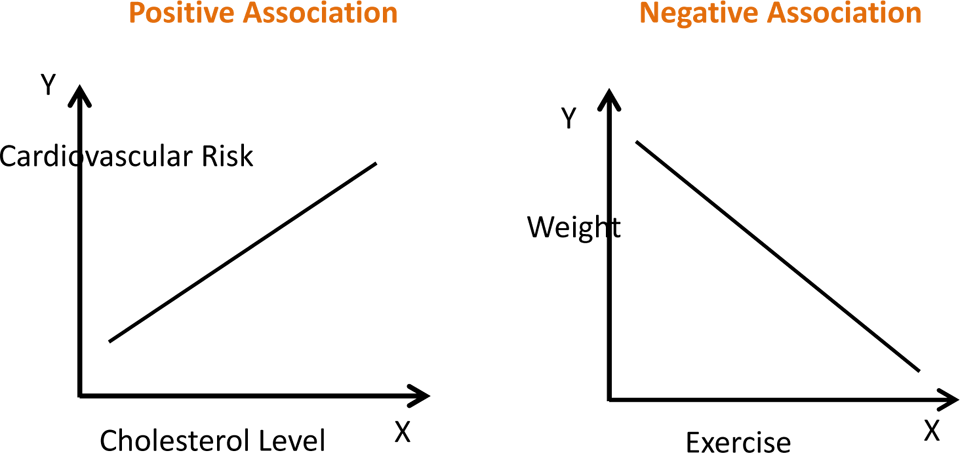Module 3: Elements of Research - Section 2
Section 2: Associations and Cause and Effect
Definition: The term association means that two or more things are related or connected to one another.
The term association means that two or more things are related or connected to one another like height and weight, cholesterol level and heart failure or exercise and weight loss. Associations can be positive or negative (the positive and negative associations do not necessarily mean that the association is ‘good’ or ‘bad’). Positive associations suggest that when one variable is increased, the value of another variable increases (e.g., as height increases, so does weight; as cholesterol level increases, so does the risk of heart failure). Negative associations mean that when a variable is increased, the value of another variable decreases (e.g., exercise is introduced (or increased) and weight decreases). Associations can be found in experimental or descriptive studies. Finding significant associations, either during descriptive or experimental studies, may lead to the development of programs or treatments to remedy a particular problem.

The variable X is the independent variable.
The variable Y is the dependent variable.
Case example for Associations and Cause and Effect
One example of an association is seen with aspirin use and prevention of heart attacks. The more aspirin that a former heart-attack patient takes, the less likely it is that he/she will have another heart attack (American Heart Association, "Aspirin and Heart Disease," , Accessed September 9, 2015).
Examples of Positive and Negative Associations:
Variable 1 | Variable 2 | Direction of Association | Explanation |
|---|---|---|---|
Education level | Income level | Positive
| As education level increases, so does income level. |
Exercise | Weight | Negative
| As exercise increases, weight decreases |
Study time | Test score | Positive
| As study time increases, test score increases |
Sick days | Work productivity | Negative
| As number of sick days increases, work productivity decreases |








